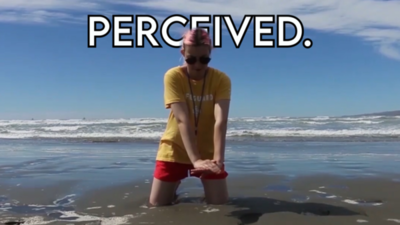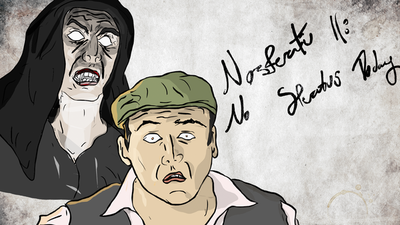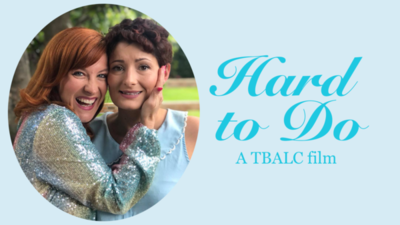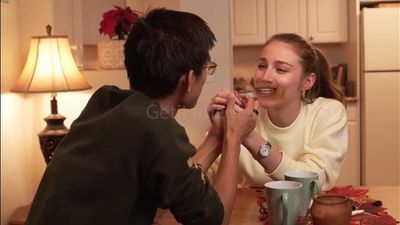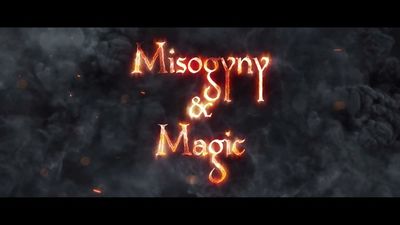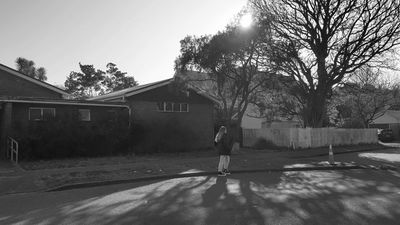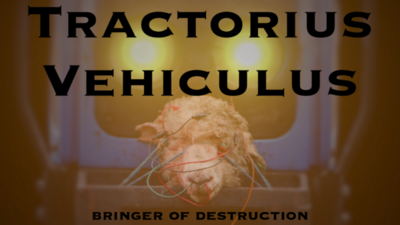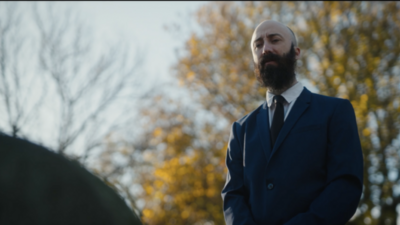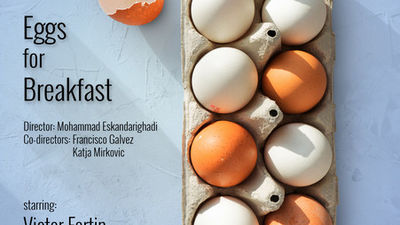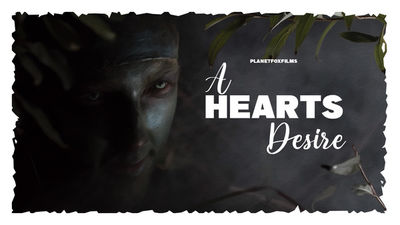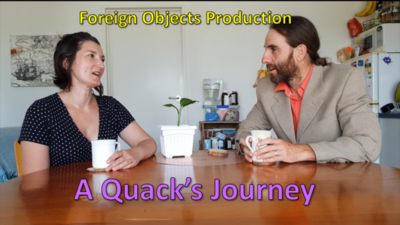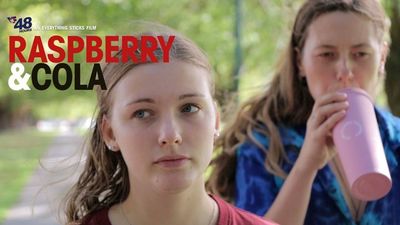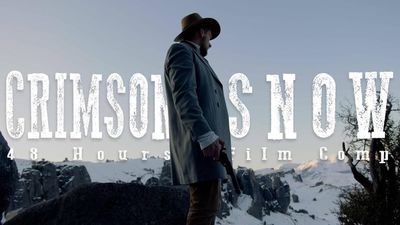 Andrew Todd
Andrew Todd
6 Entries and 18 Reviews
Entries
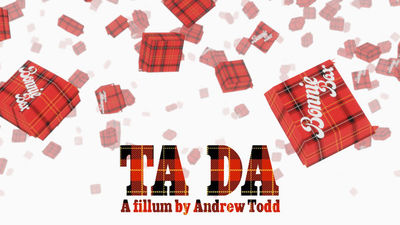 City Runner Up
City Runner Up
Ta Da
A Small Blob Of Ice Cream
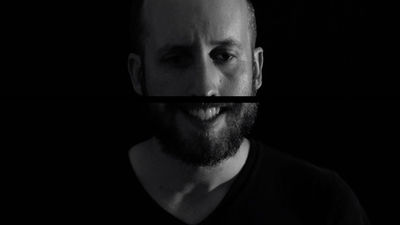 National Finalist
National Finalist
Rozkol (Schism)
Deep Dish Pizza Wolf
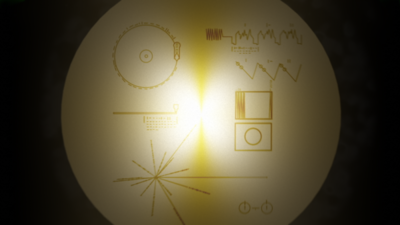
The Sounds Of Earth
A Small Blob Of Ice Cream
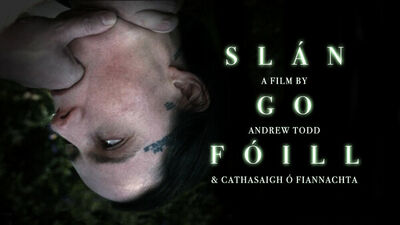 City Finalist
City Finalist
Slán Go Fóill
Fox Emoji Wolf Emoji
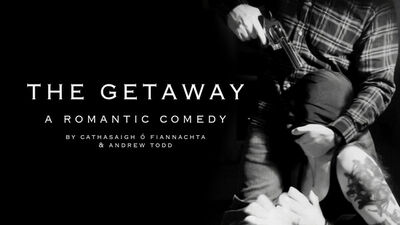 City Finalist
City Finalist
The Getaway
Wolf Emoji Fox Emoji
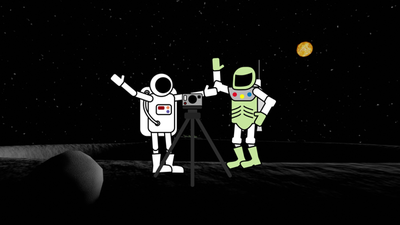
The Quiet Moon
Lamington Wolf
Reviews
Dial 'M' for Killing
When Crab Crab Crab go weird, they go weird hard, marrying bizarre practical effects with unique approaches to form, and this year's musical is no different. Except for being inherently different, because it's Crab Crab Crab.
This year the Crabs have created a film built up of vignettes that feel almost like silent-film episodes or an experimental stage show, with circular mattes following the action wherever it goes. As its protagonist escalates from killing an annoying fly to larger animals and beyond, her journey (all within her house, mind) is narrated, via song, by a Greek (and actual) chorus delivering some pretty great tunes. The music is ambitious and fun, and my fingers are crossed that the finals audience, should they see this film, sings along with the gloriously misanthropic final number.
The two downsides are the slightly muffled vocal recording, which renders the (probably great) lyrics difficult to hear, and the story. While the escalation from fly-swatting to matricide is entertaining to watch, it's basically a linear series of vignettes. There are no narrative gear shifts, no surprises other than the means to the end, and while the return of the fly is a nice button to end on, it signals a total lack of change across the story. Maybe that's the point - the human race just kills and kills and kills again - but as a short-film story it's wanting.
Still, one of the better musicals in Christchurch this year, and I wouldn't be surprised to see it on the big screen again. I'll just have to restrain my eyes from rolling out of their sockets at the (intentionally) CSI: Miami-grade groaners delivered by one member of the chorus, who knows who they are and what they did.
Perceived.
"Perceived" sets up a really fun concept - that some event has rendered most of the population invisible, leaving our visible lifeguard heroine to attempt to save the lives of people she can't see. It yields a couple good gags towards the start as she lifts invisible folks out of the water, and it drives the subsequent conflict quite well also.
As steelpotato has noted though, the story's a bit light, basically all hinging on one exchange of dialogue towards the end, after quite a protracted setup. There's also a tonal issue at play: while I think the team was going for devious humour with the main character leaving someone to die (? am I remembering that correctly?) in order to score with their partner, and it DOES get some shock-laughter, it comes across as a little predatory upon basically any amount of further reflection. There's no reason why that plot turn can't happen - it just needs to be supported or refuted by further story developments. Digging in to the consequences of that action, positive or negative, would frame it better, and better clarify what tone you were going for and what kind of story you were trying to tell.
Something I talk about often in storytelling is "gear changes" - where the story shifts gears into a new or escalated place, raising the stakes or offering up character reveals or changes. That'd be my principal suggestion for Off Demand moving forward: with a couple more story turns, this could've been quite a strong wee story.
Nosferatu II: No Sferatus Today
I feel like I've seen this exact warehouse location in at least a few other 48hours films at this point, so I got off to a bad start with Nosferatu II. The setup - a thief sneaking into a Raiders-esque warehouse full of strange objects to steal an item - offers promise, but the film doesn't really kick off until the supernatural shit arrives. And boy does it kick off!
The scuffle that follows is repetitive in places and roughly-hewn in others, but mostly it's a hell of a lot of fun, drawing heavily (and I mean HEAVILY) from the Sam Raimi school of spook-a-blast horror setpieces. The dolly shots of the quite-silly vampire are hilarious, and the sequence features one of my favourite "something invisible" moments of the Christchurch comp this year. And though the climax comes somewhat predictably, it's got a nice little ironic sting for the protagonist.
Genre-wise, the crime element is merely a jumping-off point, but the film is so much fun that I don't think it matters. This is a super-fun film whose kinetic energy transcends any roughness in production, and I can't wait to see it again with a bigger audience. Lives up to its absolutely stupendous title, even if there's nothing sequelly about it.
Hard To Do
I'm always going to judge TBALC on a curve, on account of them being my former team and current friends, and on account of them historically being the most successful team in the Christchurch competition. I also think that they can take the feedback. So for non-TBALC teams, this review is going to read as unnecessarily scathing, but know that it comes out of love for the team, and out of the frustration of seeing a potentially great film reduced to a merely pretty good one (and a very likely finalist).
HARD TO DO's story is real good and a return to form for TBALC. The story of someone being peer-pressured into not just a marriage, but a pregnancy (I think?) and ultimately years and years of care for someone they don't really like, has great potential for some acidic cringe comedy, and there is a bit of that in here.
However! I feel like the execution of this idea lets the film down somewhat. It's not a technical thing - it's crisply-shot and the sound is well above-par. It's not an acting thing - the lead actress delivers a really good comic "straight-man" performance that is restrained but bears absolutely clear intent in every scene.
Ultimately, it's a writing thing, and it's a directing thing. This kind of story relies on escalation, and the structure of the finished film doesn't quite ride that curve in a satisfying way. It gives whole scenes to moments that should be just that, moments, and in doing so robs itself of screentime that could have been spent further upping the stakes, increasing the situation's absurdity, and being meaner to its main character. We don't need to see or hear from a gynaecologist when the main character has her legs in stirrups; we don't need to see a book or self-pep talk about breaking up when the performance sells the situation; we do need more build to the central relationship in order to push the character to breaking point at the end, which in its submitted form is a bit abrupt. Knowing a bit about how the team works internally, it's classic TBALC: writing too much script, not writing visually, and losing vital connective tissue as a result.
Those issues are also tied into the directing: unmotivated compositions, cutaways, and edits that prioritise coverage on the large cast over the protagonist's journey. The film would probably be better served with fewer setups, focusing more on the protagonist instead of the expanding family causing her such grief; instead, the film gives those characters too much emotional buy-in, from the health revelation that makes the wife character a bit too sympathetic, to an ending that confusingly gives the final image to the elderly grandpa (a character seemingly abducted from a completely different type of film), when a final closeup on the protagonist would've put a hilarious, ecstatically cruel button on the story. It's a strong story, and it still reads and plays to an audience (as the Audience Favourite award demonstrates); it's just not the best version of itself, coming off as a bit unfocused and safe when it should have much, much more edge.
If I had to give advice to TBALC, it'd be the same advice as ever: can these story beats be communicated more efficiently? What's the simplest, most elegant, or most appropriate way to visually frame the story? What's most important to the story, and what can be lost? What's the core that makes this story unique and how can you make the most of it? And why on earth is this film called "Hard To Do" and not "Together Forever"? Important questions for us all.
The Ad
Olax have been toiling away year after year ever since the bizarre, vibey party film debut (which broke the brain of at least one judge that year), achieving various flavours of weirdness (and comprehensibility) along the way. This year they went for a big ol' crowdpleaser, and central to the crowd's pleasure is Chess Club hero James Kupa, relocated to Christchurch and adding a third major centre to his 48hours tour of benevolent domination. (Disclaimer: I am friends with James, as New Zealand is small, so my effusive praise may be taken with a grain of salt. I am, however, still right.)
Kupa plays washed-up former All Black Richie McNuggets, tainted by a disastrous play in a big, uh, sports-game final of some sort, doing a job of presenting a heat pump ad with all the success of a drunk and sleep-deprived Orson Welles doing a champagne commercial. The crew grows more and more stressed and restless, until the director springs some warned-against sports psychology and he nails the ad. Not much to the story, but the central performance is both hilarious, as he trips over words in fantastically creative fashion, and rousing, as he finally gets it right and the audience goes wild, at the heat clapping along with a rather impressed character.
My issues with the film stem from the big plot turn: while signposted earlier with some dropped-in dialogue, the actual execution of the turn towards quality comes through a bit suddenly, and it doesn't exactly make sense why appealing to McNuggets' PTSD and shame would bring him to match fitness, so to speak. Maybe the intention is that he sees the ad as an opportunity to right his prior wrong, but that doesn't quite come through onscreen. I also keep asking myself how strong the film is outside the barnstorming performance that anchors it, and ultimately the story is very slight (McNuggets fails to do the ad repeatedly, then succeeds).
But the performance is what you remember, and hoo boy, it's a good one. An intensely likeable film that gets in, does its thing, and gets out, and certain to do well come finals night. Best Performance is Kupa's to lose, if you ask me (and that's against some stiff competition).
S I S
In a competition that's usually won and lost on content, it's a thrill to see a team take a chance on form, and that's exactly what Cant Shack did with this one-of-a-kind entry.
I honestly can't remember much about the story - apart from it being an amusing tale of impotence and relationships - but I don't remember thinking it was particularly bad. Where S I S (I don't know why it's not just openly titled Spermless In Seattle, but then it's a weird decision in keeping with the rest of the film) absolutely fucking rips is in its filmmaking technique and bizarre sense of vision.
Built to look like it's made entirely out of stock footage (some of it genuinely is, while most of the footage I assume was shot for the competition), S I S is a truly strange viewing experience, keeping the audience guessing as to how it's put together, and frankly, why it's put together that way. Steelpotato's GREENER GRASS reference is on point, but this particular brand of surreality feels more like a Chris Morris sketch or an Adult Swim special to me; whatever your reference point, it's fucking funny in a deliciously uncomfortable way.
Hard to judge on the same criteria as the rest of the entries, because in some respects it isn't even playing the same sport, but it's one of my favourites from this year and I hope it gets to bamboozle a full house at the finals. If this team united with Toot Toot they'd break the fabric of the universe.
Misogyny And Magic
Solid little adventure story about a wizard, a warrior, and a secretary going to slay a dragon. Well-shot, fun costuming, good use of a cornfield location, and a pretty terrific "something invisible" - I wondered if anyone was going to do offscreen/missing VFX, this team did, and it's pretty funny to watch as a warrior just disappears and gets killed offscreen, or a wizard fights with an unseen (but supposedly enormous and dangerous) foe. It all leads up to a twist ending that puts a neat bow on the proceedings, though it does create its own issues.
Have to concur with the other reviewers: putting "Misogyny" in the title means the film is guaranteed to be scrutinised for its gender content, and while I think there's a solid intent here, the execution ends up backfiring. It's okay to show people being misogynistic in a comedy as long as the joke is on the misogynists, but the early jokes at Betty's expense feel as if the film's trying to get laughs out of the insults themselves - largely because due to the voice-of-god narration and focus on the more traditional fantasy characters, the story isn't told from Betty's perspective until the very end. Additionally, having Betty slay the dragon in the end is clearly meant to be a statement against the other characters' sexist attitudes, but giving her the motivation of causing her colleagues' deaths makes her seem like less of an unlikely protagonist and more of a secret villain, which just perpetuates a different kind of sexist trope. Satire is hard to nail!
Well-made at any rate - hope to see this team back again, and hopefully qualifying. And I see the story team was gender-diverse, but if you're writing about misogyny, put a woman on your actual scriptwriting team!
Emily goes to the dairy and buys some milk
I'm not sure what the intent was behind this film - I suspect Musical/Dance threw this team - but I am sure that in the screening at Little Andromeda, this film absolutely SUNG with an audience, hanging on every last awkwardly-held shot and awkwardly-performed dance sequence. I feel like it would not work quite so well in a streaming context, but after the live screening it was all my friends and I could talk about.
In a competition where far too many films end abruptly without delivering on their promises, Emily Goes To The Dairy And Buys Some Milk does exactly what it says on the tin. It's got a beginning (Emily), a middle (Goes), and an ending (To The Dairy And Buys Some Milk). And it is SO satisfying when she finally gets that milk.
The kind of beautiful, transcendent strangeness that you only get, and that can only work, in 48HOURS.
Covert Movements
Ah, the 48hours subgenre of "everyday things being treated like epic genre stories". A classic.
"Covert Movements" concerns the an investigation, led by a "suave" PI, as to - not to put it too bluntly - who shat in the upstairs toilet. In classic 48hours fashion, it's a low-stakes story presented as a high-stakes one, with a twist ending that seeks to flip the whole thing on its head, as the PI seeks the culprit - while completely missing the much greater crimes committed by nearly every employee.
This type of story has been done many times in 48hours, right down to the structure of interviewing a number of characters and giving them all cutaways to illustrate their dodgy behaviour. That structure creates quite an episodic and repetitive film, and doesn't offer up many turns that heighten the audience's buy-in into the story. That issue is compounded by the team's choice to cast actors in multiple roles, without much in the way of different characterisation, meaning the audience is often left confused as to who's speaking and which characters we should be paying attention to. It's especially weird when the boss calling the PI is the same actor as the PI himself. Next time, the team could look at acknowledging the similarities between characters, creating greater differences between them visually or in performance, or just writing for the cast they have.
It all culminates in an ending that comes out of nowhere, and not in a great way. Unless I missed something amid the multi-role cast, the character revealed as the culprit at the end is only first introduced in the scene where that is revealed. Without really knowing anything much about the characters, and without knowing anything AT ALL about that character, the "big reveal" is meaningless to us. The fact that he has a legitimate reason for doing what he did is funny, but it'd be way more satisfying if it was a character introduced earlier.
Next time, I would recommend going for quality over quantity when it comes to characters. It'd be far more interesting watching a small handful of developed characters going back and forth over whodunnit than seeing a sprawling cast of confusing cameos barely getting a word in.
Hope that guy's leg gets better.
Cop Out
Look, I've seen this joke done before (in The IT Crowd, as TheRealClose says, and elsewhere), but I've never seen it done this well. This team has done with the anti-piracy PSA what they did last year with stock footage, and it's one of the funniest things I've ever seen in this competition (and I've probably seen well over a thousand 48hours films). The jokes JUST. KEEP. ESCALATING, with some truly chef's-kiss moments throughout (the James Cook joke, holy shit), and each one was a newfound delight. Terrific attention to filmmaking form as well, subverting 48hours narrative and stylistic conventions and working perfectly within the staccato style of this particular, well-known PSA. I look forward to rewatching it to chart the story that's likely being told through the cavalcade of S-tier jokes that (on first viewing) are so funny they preclude any possibility of paying attention to story. My vote for audience favourite by a mile.
Tractorius Vehiculus, bringer of destruction
One of my favourites from the heats - a hilariously absurd setup, supported by some solid production design on the bionic/demonic sheep-tractor, and remarkably well put-together for what I thiiink (based on a brief chat after the heat) was a first-time team. The core concept carries this short a long way, but it's the filmmaking that sustains it for the running time, with some nice shot choices and editing that helps to heighten the action of this ovine farm equipment straight-up murdering a bunch of children. Some slightly wonky moments, and the ending is a random gag rather than a satisfying conclusion to the story/situation, but still - I cackled my ass off watching this and would gladly watch another film from the same team.
Robbed of a shortlist spot in my opinion, and I hope it wins the Incredibly Strange award (always my favourite award).
Stage Four Law
As always, a tour-de-force of directing, production, cinematography, and performance from Rabid Aunty Jean, and we are totally grading them on a curve after making several of the most flawless and well-rounded shorts the comp has ever seen, but still...I think the team made a massive tonal miscalculation on this one.
The core conceit is SO jokey, setting up for the kind of dark comedy this team is great at, but beyond that (very 48HOURS-y) initial reveal, the script just has no comedy, no jokes, no tips of the hat as to its intended tone. It keeps threatening to tip over into the bleakest, funniest thing you've ever seen, but then it just...doesn't. Ever. It's not even deadpan, it's just an earnest film about grief, but then that earnestness doesn't get a chance to sing thanks to the jokey conceit. If it had any sort of punchline, it'd be a dead-cert winner, possibly nationally; the way it is, it's just a little bit baffling. The utterly silent heats audience clearly wasn't sure what it was meant to be or how it was meant to be watched, and while that can be a good thing, I think it's a bad thing here.
Tone is hard, and hats off to RAJ for making a big fucking tonal swing with this one, but sadly I don't think the swing connected. I don't like giving negative reviews but I feel like this team is experienced enough to take it. Still, wouldn't be surprised to see it take out one of the top two spots in Christchurch.
Eggs for Breakfast
If 48hours could pass a rule banning films from starting with characters waking up and making breakfast, the films would be significantly better, losing all that routine guff and honing in on character. "Eggs For Breakfast," as its title suggests, makes a bigger deal of the breakfasting than other films that go that route, but it lets itself down in other ways that actually made me forget the dreaded 48hours alarm-clock opening until just now. (I don't know how I did, because the spectacularly moustachioed lead actor's morning dancing was one of the film's highlights.)
I'll be honest: the story confused me as to what it was trying to accomplish. For a while, I wondered if it was a parallel-world thing, or a time-loop thing, in which a new actress played Moustache Man's girlfriend each time (I didn't expect this review to reference MOTHER!, but there we go). But no, it just shows us the guy serially dating, and...that's about it. There's no ending, no resolution, just a closing voiceover lifted from ANNIE HALL's closing voiceover (ill-advisedly, given HBO *just* produced a series about Woody Allen's sexual abuse scandals) that doesn't really shed much light on what kind of statement is being made. The statement is just that...relationships end and we start new ones? No amount of facial-hair charisma can add greater depth to that, unfortunately.
My advice for the future is the same as many teams get from me: write an ending, or at least write story developments that change the character(s) or raise the stakes or shift the emotional tone somewhat. Otherwise, we're just watching a dude dance in his PJs and sit on a couch.
A Hearts Desire
My god, the first few minutes of this film.
Rarely have I seen a horror film so effectively executed in my time involved with 48HOURS. PlanetFox Films nailed the look (crisp and clear even shooting in the dark), the feel (the lead monster's unsettling performance), and the tone (from the slopping hands at the start to the carefully observed sound design) of horror, which is difficult to achieve in a short film at all, let alone one made in 48 hours. The film draws you in, wondering what its curious protagonist will have to sacrifice in order to gain the delights offered by this river-dwelling beast...
...and then blinks.
I'm all for subverting genre, but the issue here is that SO much of the film is spent building SUCH a great atmosphere that the comic undercutting of the final minute or so is a serious letdown. The tone is shattered, and even the actual plot development sort of comes out of nowhere, uninformed by anything else earlier in the film. That's not to say that twist couldn't have worked - it just needed to be seeded a bit more earlier on. Maybe the tone could be broken for a couple moments here and there, or maybe the subversion could happen earlier, at the first "act" break, and the actual plot plays out in that comedic What We Do In The Shadows / Wellington Paranormal style the team was clearly gunning for. But with the structure as handed in, the comic shift lets the air out of the balloon, so to speak.
I know PlanetFox is all about the wild silly humour in their heavily practical horror films, but honestly the skill on display early here is such that they don't need to fall back on that familiar tactic. One day this team is going to win big - and they may very well scoop up some awards at the finals, in which the film assuredly will be playing - but they need to place greater confidence in their ability to craft genuinely unsettling horror, and as with many teams, stick that landing.
A Quack's Journey
Foreign Objects have quietly been one of my favourite 48HOURS teams for a while - not for making the best films, because they don't (and I feel like they'd happily admit that), but because they make idiosyncratically weird films only they could make, and put visibly exuberant energy into making them.
"A Quack's Journey" exhibits all the hallmarks of a Foreign Objects film: hilarious leaps in logic, theatrical acting, and a storyline so weird, and so completely driven by the compulsory elements, that it could only emerge from what must've been a wild brainstorming session. While not the best film in the heat, it got a terrific response from the audience, and it deserved every laugh it got, from the "I can't turn it back" reveal to, well, basically anything to do with the hamster. I'd also argue it had the single best final shot / punchline of the heat, in the terrific pull-out to an empty apartment that's a great button on the story and must've taken a lot of effort to achieve (and then, presumably, un-achieve after the shoot).
I almost hesitate to offer suggestions to Foreign Objects, lest their films lose some of the weird edge that makes them what they are. Audio is clearly an issue: I'm not sure what gear they're using, but the audio peaked *a lot*, so it might pay to turn down the gain if that's possible. Maybe some greater depth to the characters - beyond their interaction with the central plot device - would help, too (and it doesn't need to be anything extreme or melodramatic; just something to define the characters a bit better). But whatever you do, keep telling your imaginative stories about invisibility stones and hamster pee and the like - they're friggin' hilarious, and this one is one of the stronger ones, with fun twists and turns that were a delight to experience.
Also, well done that hamster drinking so much water over the credits - that'll provide plenty of pee.
Raspberry & Cola
"Raspberry and Cola" is another simple, self-contained film from 48 veterans Everything Sticks, and it's one of their better ones, with strong performances and pretty solid execution all around. A relationship between two women comes to a head over something as insignificant as soda flavours - as often happens in relationships - and deeper issues simmer under the surface as that minor drama plays out.
The issue is that not much actually *happens*. It's got the same issue as a couple of prior Everything Sticks films, in that a lot of the story takes place internally for the characters, but isn't communicated to the audience, resulting in a lot of awkward silences where we're trying to infer meaning. Ironically, this is the opposite note I gave to TBALC: they overexplained when the performance could sell the situation, whereas this film relies on the subtleties of performance so exclusively that it'd hard to derive anything but the vaguest of meanings from it. It's the old "write what the audience sees and hears" maxim - I don't think that should be a fixed rule, but it definitely applies here.
As a result, the story comes off a little on the light side. Though there's clearly a character change in there somewhere, it's not particularly clear to the audience what it is, or why it's happened. I'm sure there's subtext to the soda-pouring puzzle, but it's lost on the audience, while being imbued with such solemn importance that it almost becomes unintentionally funny. Just needs a bit more context, a bit more information about the characters, and it'd gain the sense and meaning it needs. The idea is strong, but it's obscured by its execution.
Toot Toot's Biggest Fantasy Movie
Toot Toot has done it again with their finest and most laboured pun yet - a pun that suggests a cavalier approach to genre, but which belies the fact that the film still totally satisfies its genre despite its mundane setting. Even if you don't get the in-jokes, the film would still work. (I think. I know the in-jokes so I can't really comment.)
Anyone sick of white-walled Christchurch houses, this is the film for you.
A sure winner of Best Match Cut. Surely.
Crimson Snow
Gods, what a beautiful-looking film. It's easy to say the location did all the work here, but that'd be ignoring the fact that it's also shot really really well - and shooting in snow is *hard*. A lesser team could've made the same logistical effort and shot at the exact same spot and turned out something that looked awful. Clear winner for Best Cinematography.
It's been stated in other reviews, but the film falls down in its storytelling. There are great moments in there - the wide shot of the distant gunslinger stands out, as does some of the suspense-building later on - but the film's just a little all over the place directorially and editorially. It feels like the team had all these great-looking shots and wanted to use all of them even if they didn't really have a specific storytelling purpose, where a slower pace with fewer and more intentional setups might have told the story more simply and clearly (and more in-genre, too). There's also some geographical confusion towards the end, which again, could've been avoided with a more deliberate approach.
And there's the ending itself - I feel like if you set up a missing girl at the top, AND have a dying man say "save my granddaughter" at the midpoint, by law you are REQUIRED to find the girl. I don't know if it was an issue with losing time (in which case, fair enough, it happens), or casting unavailability (in which case, don't write a story featuring a little girl!), but the ending is one of the more frustrating in the comp this year. All the more so because the film that precedes it is so well-made, CGI ragdoll notwithstanding. If he'd walked into the sunset with a rescued girl, shit, this might've placed in the top two. Even if he'd found a corpse, it would've felt more complete, if significantly darker.
I know the core people in this team and what they're capable of, and I feel like they can take this criticism (they probably even agree with it). They also seem to have achieved more or less exactly the crazy ambitious feat they set out to achieve, and that's always worth something. It's not often you see a 48hours film that takes your breath away how this one did, and I wish it well for the coveted national award for cinematography.

